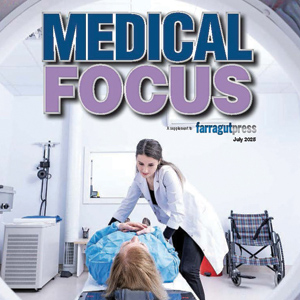Watch for dry eye problems with dogs, cats
This is a special Ask Vet column from Dr. Stephanie Myers of Lenoir City Animal Clinic. Her regular “second issue of the month” column returns for our Wednesday, Oct. 12, issue.
Q: “Mae” is our English Bulldog. She has always had runny eyes, and it seems to be getting worse. I just thought she had allergies, but the vet wants to check her for dry eye. I didn’t know dogs could get dry eye. Are there eye drops for that? Is the test painful? T.H., Farragut
A: Yes, dogs (and cats) can get dry eye, the common name for keratoconjunctivitis sicca.
Although any dog can have dry eye, it does run in certain breeds, including Bulldogs. Dry eye occurs when dogs do not produce enough tears.
The most common reason is an immune reaction in the lacrimal tissue (tear ducts) that changes the pet’s ability to produce their own tears. Other causes include viruses, trauma, certain medications and abnormalities in the nerves that supply the tear ducts.
The test for KCS, called a Schirmer tear test, would not be painful for Mae. It would just take a few minutes. Clinical signs that veterinarians look for (which I assume Mae has) include yellow or green discharge, red eyes and/or corneal dullness. Some dogs are so itchy and uncomfortable that they rub or paw at their eyes. Secondary infections and/or conjunctivitis can occur.
There is medication for KCS. In some mild, early cases, over-the-counter human eye drops for dry eye can be used every four-to-six hours. This will help replace the tears that aren’t being produced.
There are also prescription eye medications, typically used twice daily, to help Mae produce more of her own tears.
It can takes eight-to-12 weeks for adequate tear production. If there is limited or no improvement, your vet may increase the strength of the medication and/or change to a different medication.
Dogs that are still unresponsive to treatment should see a veterinary ophthalmologist.
Untreated KCS can eventually lead to corneal scarring and loss of vision, so please follow up with your veterinarian’s recommendations.
If Mae has KCS, she will need lifelong treatment and monitoring to manage her disease. Best of luck to her.
If you have questions about your pet, e-mail Dr. Myers at lenoircityac@gmail.com


